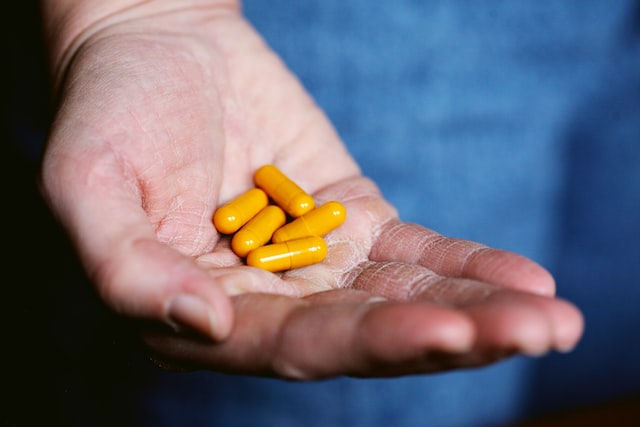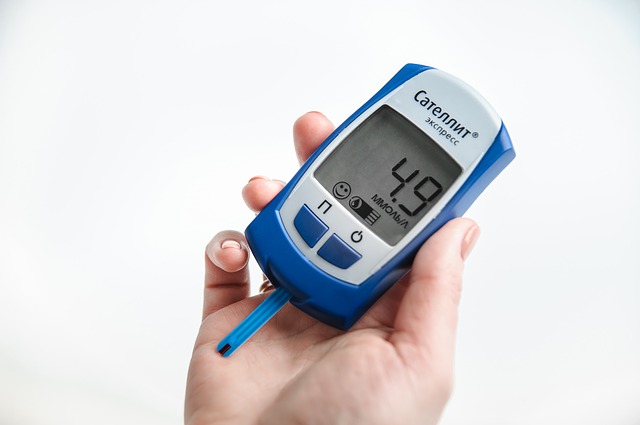
A question we get asked all the time, are antioxidants good for diabetics? Can it help in diabetes management? Is it possible that antioxidants may help reduce the risk of diabetes? Let's answer this frequently asked question.
Contents
What are Antioxidants?
Antioxidants are substances that inhibit oxidation. Oxidation is a chemical process that results in the transfer of electrons—it always occurs along with a reduction—one substance is oxidized while another is reduced. These are termed “redox reactions”. Rust, corrosion and the internal combustion engine are examples of redox reactions that we are all familiar with. In the body, these types of reactions are occurring all the time producing end products that are known as free radicals. Free radicals are highly reactive substances and can bind to DNA and proteins, damaging them permanently and causing cell, tissue and organ damage. The body has natural antioxidants (eg. Vitamin C, Vitamin E and glutathione) that normally sop up all these free radicals, reducing and often eliminating the damage caused. In many different chronic diseases, including diabetes, the levels of free radicals overcome the body’s ability to soak or sop them up. The high level of antioxidants leads to a condition in the cells, tissues and organs known as oxidative stress. We see oxidative stress show up as chronic inflammation and damage to nerves, blood vessels, tissues and organs. In diabetes, the blood sugar glucose is heavily oxidized as are proteins and lipids (fats) leading to what is known as Advanced Glycation End products or AGEs. In fact, A1c, often followed to monitor how well someone is controlling their blood sugar levels is an AGE.[1]
How can Antioxidants Benefit Diabetics?
Many studies have shown that oxidative stress is strongly associated with diabetes—and particularly with the complications of diabetes. [2], [3] The use of antioxidants—either from food sources or as a supplement is an active area of study in diabetes research.[4] One of the main ways antioxidants may help prevent or potentially reverse damage from oxidative stress is by reducing damage to the endothelium—this is the layer of cells that line blood vessels. Antioxidants appear to act at the level of the endothelial cells, though it is not clear that adding antioxidants to the diet or as supplements directly acts on these cells.[5]
For more on the diabetic diet read these:
What are Good Food Sources of Antioxidants?
Antioxidants are in many different foods – and are recommended not only for diabetes, but to reduce the risks of heart disease, stroke, arthritis, and even aging. Some of the types of antioxidants that you may come across are the anthocyanins (found in berries and purplish fruits and vegetables), allium compounds containing sulpher (found in onions, garlic and leeks), beta carotenes (found in yellow, orange foods and dark, leafy green vegetables), catechins (found in red wine and teas), flavonoids (found in teas, red wine, citrus fruits) and many other foods. Antioxidant vitamins include Vitamins A, C, E and the beta-carotenoids (used by the body to make Vitamin A). Minerals such as manganese, zinc and selenium function as antioxidants as well. Both clinical and population studies have indicated that in groups eating a diet high in antioxidants, the rate of diabetes is lower. In addition, these studies have indicated that a diet high in antioxidants can help reverse early diabetes, help control diabetes and reduce the complications of diabetes.[6]
Essentially, and most simply, if you include lots of brightly colored fruits and vegetables along with whole grains, seeds, nuts, beans and legumes, you are on your way to supercharging your diet with antioxidants. You might have noticed that the types of foods listed are the same ones recommended to control diabetes—and that is part of the reason whole foods that are not processed are recommended!
Another important piece of information—taking antioxidants either in your food or as a supplement does NOT depend on your exact form of diabetes. This is because it is the high blood sugar levels that are the cause of the oxidative stress—and that is a characteristic shared by all forms of diabetes.
Here is a list of some of the foods highest in antioxidants:
- Dark, leafy green vegetables: Kale, spinach, mustard greens, collard greens, Swiss chard
- Berries: blueberries, strawberries, raspberries, blackberries
- Nuts: Walnuts, almonds, cashews, peanuts, Brazil nuts
- Seeds: flax seeds, sesame seeds, pumpkin seeds, sunflower seeds
- Herbs and spices: oregano, thyme, turmeric (curry), onions, garlic, cumin, parsley
- Cruciferous vegetables: Broccoli, cauliflower, Brussel sprouts
- Sources of Vitamin C: Mangoes, Papayas, oranges, lemons, limes, bell peppers (especially red peppers)
- Fruit: grapes, apricots, peaches, avocados, grapefruit, tomatoes
Antioxidant Supplements Used in Diabetes
There are a number of supplements available and promoted for diabetics. Talk to your physician before adding any of these as supplements—some may interact with medications and your physician (and pharmacist) are best situated to know which ones will provide you with the best protection and the best dosages. Many of these supplements (except the vitamins) have not been studied in children under 18, so talk to your child’s physician before adding any of these to your child’s daily routine. The ones with the most research evidence behind them are:
- Vitamin E can be found in walnuts, sunflower seeds, almonds, spinach (and other leafy green vegetables) and avocados. As a supplement, Vitamin E is usually found as an oil. If you are looking for Vitamin E as a supplement, look for it as “Mixed tocopherols” if you want to match it to the form of Vitamin E found in foods as closely as possible. For adults, 15mg or 22.4 IU is the RDA for Vitamin E. Most of the studies in diabetes used 400-600 IU vitamin E has been taken by mouth once daily.
- Vitamin C is found in citrus fruit, mangos and papayas. Humans are one of the few mammals that cannot make their own Vitamin C—it must be obtained from food. This is important because Vitamin C is one of Nature’s first recycling machines—it can keep on acting as an antioxidant over and over again. It does have a limited “lifespan” which is why we need it on a daily basis. Unless you have kidney problems, the usual “dose” to provide antioxidant protection is 250-500 mg taken by mouth daily.
- CoEnzyme Q10 (CoQ10): CoQ10 was originally called “ubiquinone” because it was so ubiquitous in the body—it was found in every cell of the body….EVERY cell. The function of CoQ10 is to help convert food (ie. glucose) into energy. Recommended dosage is 30-200 mg daily. Use the higher doses if you are also using statin drugs to manage cholesterol because the statin drugs deplete CoQ10—some of the side effects of statins appear to be due to this depletion.[7]
- Alpha lipoic acid (ALA): ALA is made in the human body, but in relatively small amounts. It helps convert glucose into energy as well. It has been shown in a number of studies to help prevent diabetic neuropathy. The usual dose is 600-800 mg per day (usually in divided doses).[8]
- L-carnitine: acetyl-L-carnitine has been shown in several studies to increase sensation and reduce pain in diabetic neuropathy. Dosage can vary, so talk to your physician before using L-carnitine.
Side Effects of Antioxidants
If taken as food, there are no known side effects to antioxidants, though it is possible that there may be some interactions with other medications. If you take supplements according to your physician’s and pharmacist’s instructions, there are few side effects and even fewer serious side effects. Some people experience constipation, diarrhea or an upset stomach. Vitamin C taken in high doses (in grams) can cause diarrhea. In some people and in higher doses (800-1000mg/day), Vitamin E can cause bleeding problems. CoQ10 can also increase bleeding in high doses and may interact with blood pressure medications. ALA appears to have few reported side effects. Carnitine can increase bleeding in high doses. Always tell your physician and pharmacist ALL the medications and supplements you are taking and always follow your physician’s instructions on dosage.
For more diabetes related articles I suggest these:
Questions and Answers
What about the sugar in berries? Isn’t that sugar bad for me?
The sugar in fruits and berries is commonly a combination of different sugars such as fructose, sucrose and glucose. There are a number of things to consider when deciding how many berries or other fruit to include in your diet. Berries and fruit also contain other beneficial nutrients as well as fiber—and fiber can slow down the absorption of the sugars. Also, since fruit and berries contain a mixture of sugars—and often significantly less than processed foods—the actual amount of sugars you are getting is less from fruits than from, say an Almond Joy. For example, 100 grams (quite a lot) of blueberries has 7.3 grams of total sugar. One Almond Joy has 44.9 grams of total sugars... over 6 times more sugars. All in all, you are better off with the blueberries!
Are antioxidants good for diabetics? Do antioxidants help prevent, treat or reverse diabetes?
We can say that as a general statement, antioxidants are good for everyone and more evidence is accumulating that a diet high in antioxidants can help prevent and help control diabetes. Some antioxidants are showing promise reversing or treating some of the complications of diabetes, but everyone is unique and, unfortunately, there are never any guarantees. The prevailing current belief is that you can get enough antioxidants from a healthy diet and that in some cases (eg. Diabetic neuropathy) antioxidants may provide a significant benefit.
Can antioxidants be used for pregnant women with gestational diabetes?
Currently, it is not known if taking supplemental antioxidants can benefit gestational diabetes. Eating foods high in antioxidants is recommended during pregnancy in general, though there is no specific research to determine if antioxidants during pregnancy can help control gestational diabetes. If you have any comments about this topic post them down below and share this with anyone who might need them.
TheDiabetesCouncil Article | Reviewed by Dr. Christine Traxler MD on June 10, 2020
References
- http://clinical.diabetesjournals.org/content/21/4/186.full
- http://www.ncbi.nlm.nih.gov/pubmed/21294707
- http://www.ncbi.nlm.nih.gov/pubmed/12616644
- http://www.ncbi.nlm.nih.gov/pmc/articles/PMC3286717/
- http://www.ncbi.nlm.nih.gov/pmc/articles/PMC2350146/
- http://www.diabetesselfmanagement.com/nutrition-exercise/nutrition/antioxidants/
- http://umm.edu/health/medical/altmed/supplement/coenzyme-q10
- http://umm.edu/health/medical/altmed/supplement/alphalipoic-acid





